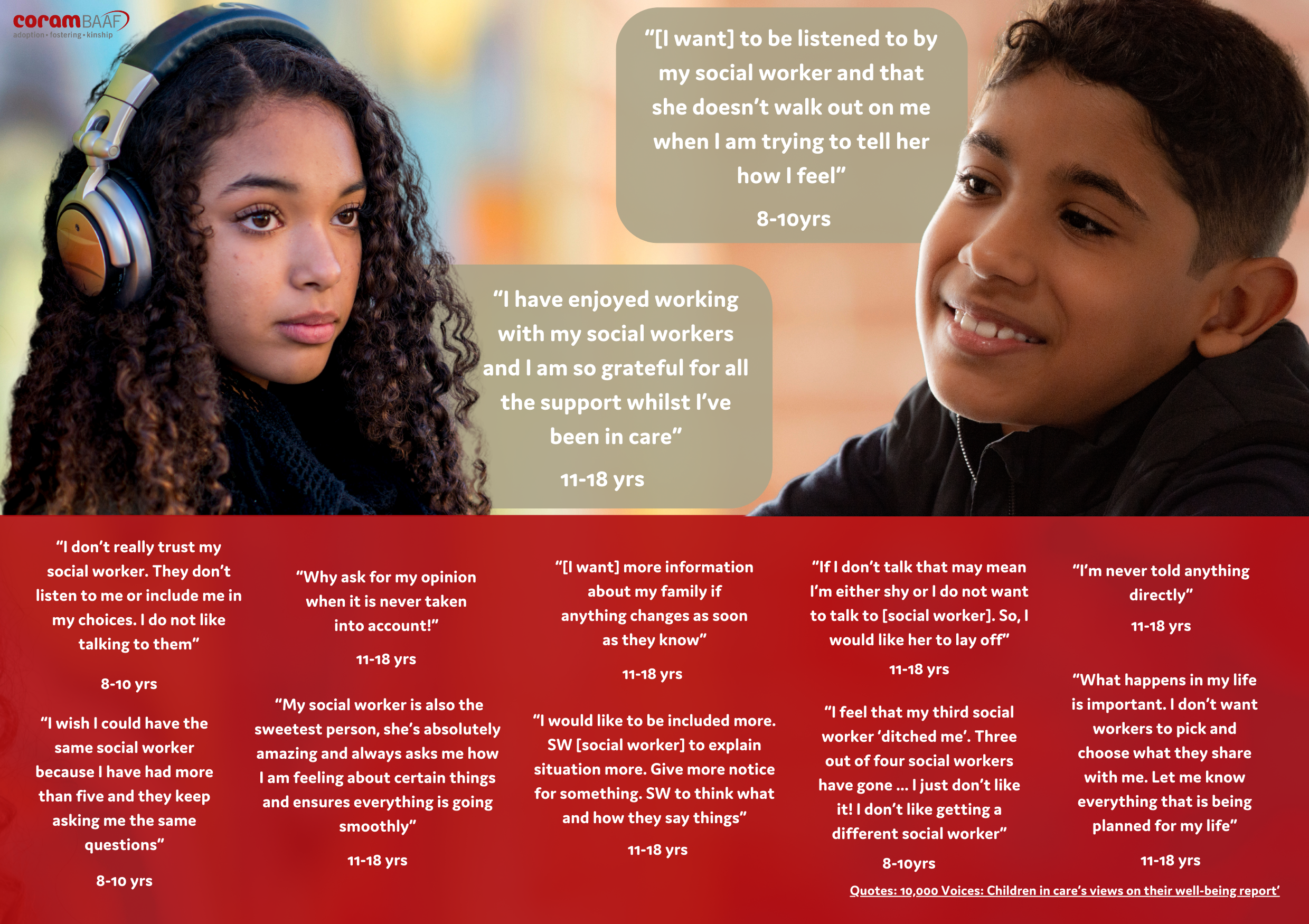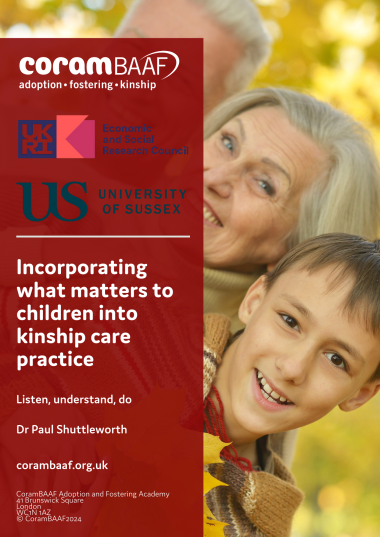Direct work enables us to truly listen to children and young people by establishing a safe and trusting environment where they feel valued and heard. Through one-on-one interactions and tailored activities, we can better understand their perspectives, needs, and experiences, leading to more effective support and care for children and young people.
On this final day of Members’ Week, we will hear from a range of people about how direct work enables us to listen to children and young people in care.
Talking with children and young people
Talking with children and young people needs to be done carefully and sensitively Here is what children said about being heard, included and involved in decision making. The quotes displayed below are extracted from ‘10,000 Voices: Children in care’s views on their well-being report’. For almost a decade the Bright Spots programme has worked with children and young people to explore what they feel makes their lives good. The 10,000 voices report highlights what children in care felt about their well-being.

Examples of direct work with children
Helen Little, Training, Consultancy, and Events Manager, sat down with Marrianne Palin, Associate Trainer at CoramBAAF, to discuss effective ways to engage with children and truly understand their thoughts and feelings.
Advertisement

Episode 34
During the conversation, Marrianne shared various techniques for direct work with children, offering insights into what these approaches look like in practice, along with practical tools that can be implemented in everyday work with young people.
Watch hereWhat matters to children
Advertisement

Incorporating what matters to children into practice with kinship care: Listen, Understand, Do
We are delighted to be able to publish Dr Paul Shuttleworth's latest work, ‘Incorporating what matters to children into practice with kinship care: Listen, Understand, Do’ - a practical guide to listening to children living in kinship families to help ensure that their voices and views are heard and acted upon. The guide is accompanied by a short video that powerfully illustrates the importance of listening to children.
See more
Recommended reading on direct work with children
Dr Dennis Golm, Editor-in-Chief, has selected relevant articles from our ‘Adoption & Fostering’ journal that reflect today’s topic for you to browse. Similarly, Jo Francis, our Publishing Manager. has chosen key titles from our bookshop to give you an opportunity to delve deeper into today’s themes and topics.
Download today’s reading list!Recommended resources
Social workers should do everything to help children in care maintain the relationships that matter
Shelly Reed faced challenges staying in touch with family when in care, though a good social worker made a difference. She says practitioners must involve young people in decisions and be proactive to make contact work.
Read moreHow creative life story work puts care experienced children in control
Life story work is essential to helping children and young people understand their family background - but the quality can vary widely.
Read moreWhy is life story work important?
Blue Cabin’s Local Authority Specialist, Joanne Stoddart, shares her experience of why life story work is important when working with care-experienced children and young people.
Read moreLife story work in kinship care
Kinship Care Advice Service for Scotland (KCASS) and the Foundation for Families (FFF) have released new life story resources for kinship carers. The collection of resources includes information on the importance and benefits of life story work and advice on how to go about it, as well as downloadable blank booklets to use with children.
Read more